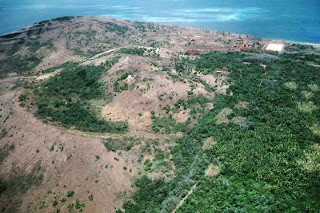Saturday, May 7, 2011
The Mabo litigation saga
Published in the New Law Journal vol 161, 29 April 2011, p 602
Prime Minister David Cameron recently attracted a few headlines when he suggested that “with so many of the problems of the world, we are responsible for their creation in the first place”. Needless to say, opinion was divided, both on the accuracy of his statement and the merits of him saying it whether true or not.
One thing Britain certainly did create, in 1788, was the modern state of Australia. At the time, it was considered that there were three ways in which title to land could be acquired: conquest, cession, and terra nullius - land with no human occupants. An inconvenience obviously arose for the last of those concepts if the land was bigger than first thought and it turned out that there were, after all, some people already living there. In response, a most offensive gloss was added by European lawyers to the effect that “primitive tribes” did not count, as they had no recognisable legal system. The Australian Aborigines found themselves labelled as such.
Lumped in with the same fate were the inhabitants of the tiny Murray Islands, three islands with a combined area of just nine square miles, situated in the Torres Strait (the sea between Australia and Papua New Guinea). The islanders were descendants of the Meriam people, whose ancestry long predates European settlements in the South Pacific. As the Australian colony grew, the colonial office in London and the fledgling local administration decided to extend the boundaries, and to that end the Murray Islands were declared annexed to the colony of Queensland in 1879.
The problem was that no one took the trouble to tell the locals about the annexation before the event. Just over half a century later, in 1936, one Eddie Mabo was born on Mer, the largest of the islands (pictured above). His was not an easy start in life. His mother died while he was in infancy. As a teenager he was exiled by the strict island council for a prank. He worked a few jobs before a stint as a gardener at James Cook University in Townsville. There he took exception to a conversation about ownership of land on the islands: as far as he was concerned his people, never having agreed otherwise, remained the rightful owners.
In 1981, Mabo addressed a conference at the University about the inheritance system on the islands, and thereafter a decade of litigation in his name began to determine the question of the ownership of the land. It was finally concluded in mid-1992 by the High Court of Australia (Mabo v State of Queensland (No 2) (1992) 175 CLR 1). The court declared that there was a system of native title (namely, interests and rights of indigenous inhabitants in land, under traditional laws and customs) recognised by the Islanders in 1879, which had not automatically been extinguished by the exercise of sovereignty by the Australian government (subject to certain exceptions). It was further declared that the traditional title had not been extinguished by subsequent legislation or executive act and could not be extinguished without the payment of compensation to the traditional titleholders. Further, the land was not Crown land within the meaning of the relevant Australian statute.
The effect of the ruling was emphatically to pour the doctrine of terra nullius with regard to the islands back into its bottle.
Not unusually for a cause célèbre, much of the reaction in the popular press combined hysteria with inaccuracy, but as things transpired the decision led neither to the extinction of private property rights as feared by some, nor to ultimate satisfaction of all Aboriginal claims as hoped by others. Subsequent cases fleshed out the caveats in the original judgment, including conditions for the establishment of native title and a reiteration that native title extinguished by a sovereign power could not later be revived, because thereafter only the sovereign power could create title.
Many Aboriginal claims have since been settled rather than proceeding through the courts, though of course the conduct of the negotiations would have been against the backdrop of the Mabo ruling. The importance of the case and the resultant vindication of Eddie Mabo's actions remain unquestioned (see Dr Kevin Lindgren QC, "Native Title in Australia" in Cases That Changed Our Lives, LexisNexis, 2010).
For Eddie Mabo himself, however, tragedy seemed to be present as much as triumph. He was denied permission by his own community to return to his dying father, on the basis that he was a trouble maker .... Then, with even crueller irony, he contracted cancer and died five months before the High Court gave the judgment for which his name will always remain legal shorthand.
So much for das Pathetisch-Erhabene. The native title doctrine has no relevance in England, but that does not mean Eddie Mabo's story should not be of interest to English lawyers. It was rather fatuous of Mr Cameron to lump the blame for present day Kashmir on the British: the governments of India and Pakistan are large and sophisticated entities who should not be excused blame for a situation that has been in their hands for decades.
By contrast, Eddie Mabo and his people, as we have seen, had their land taken by a decree of which they were not even told, and were not in the position of a sovereign state to do anything about it. A century of presumption by those who governed Australia did not alter the (im)morality of the situation. By 1992, of course, responsibility had long passed from Britain to the independent state of Australia, who at last set about righting the historical wrong.
Labels:
law,
New Law Journal
Subscribe to:
Post Comments (Atom)

No comments:
Post a Comment